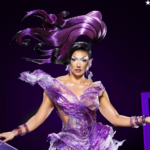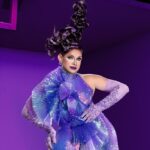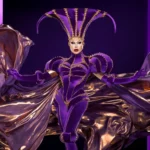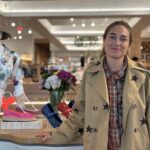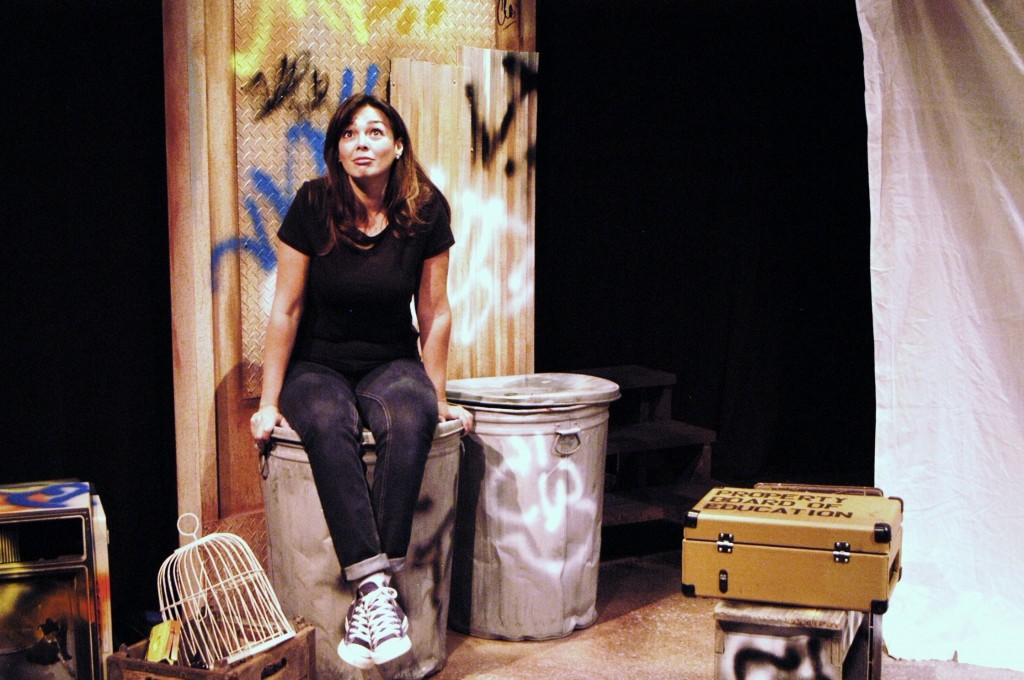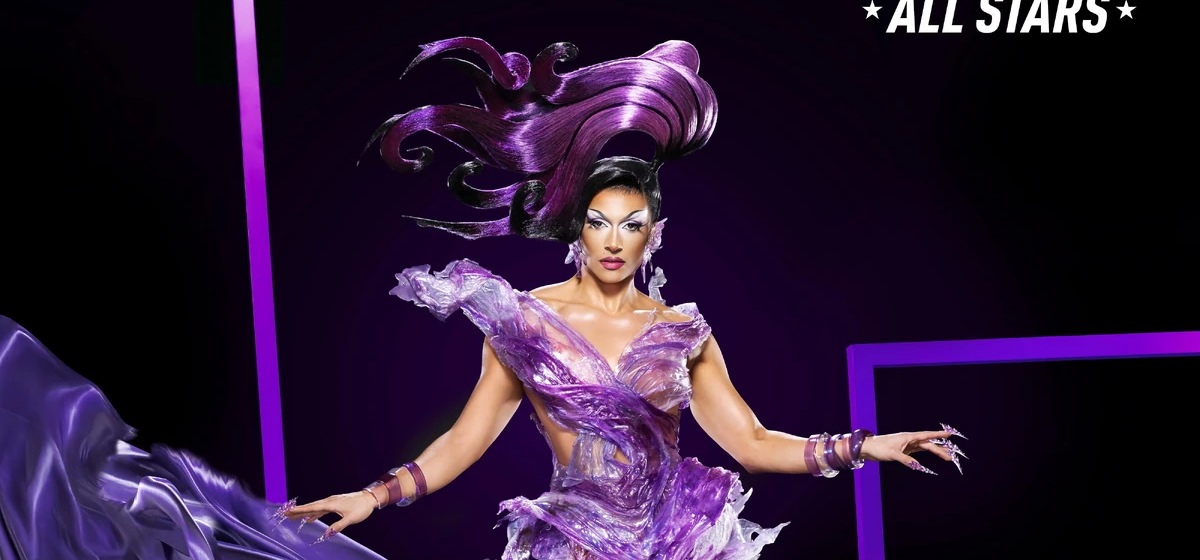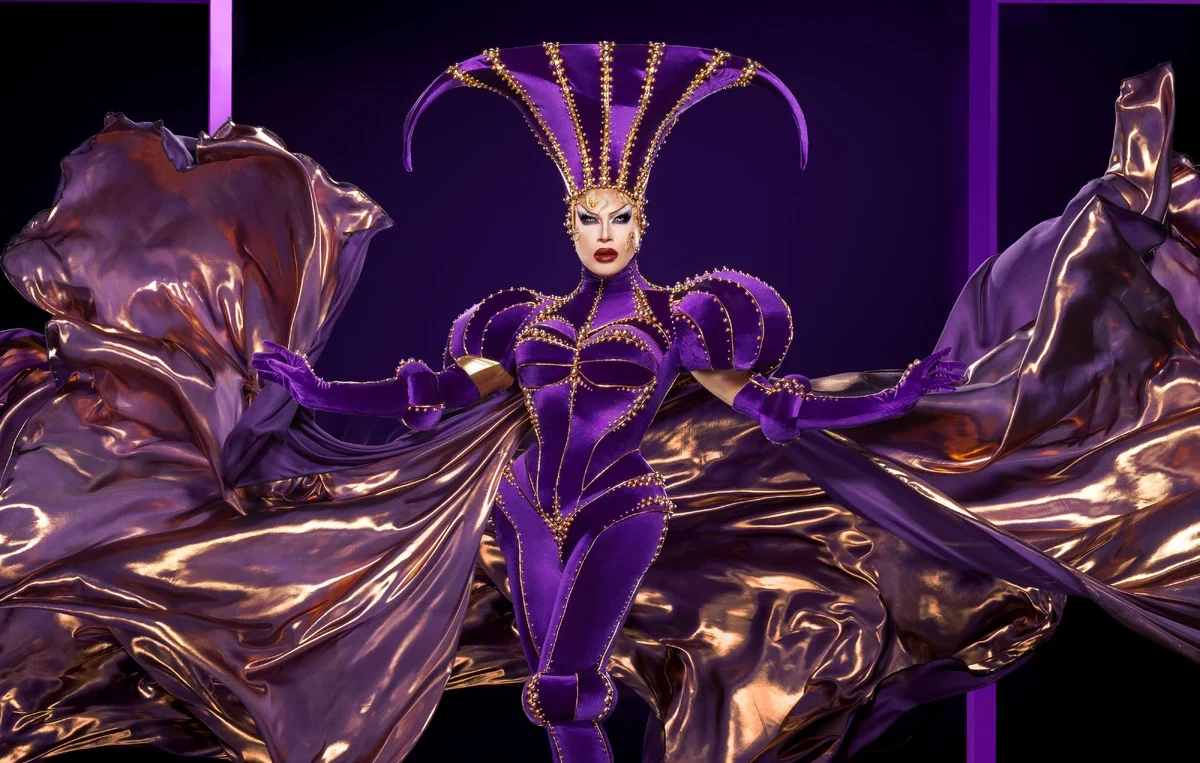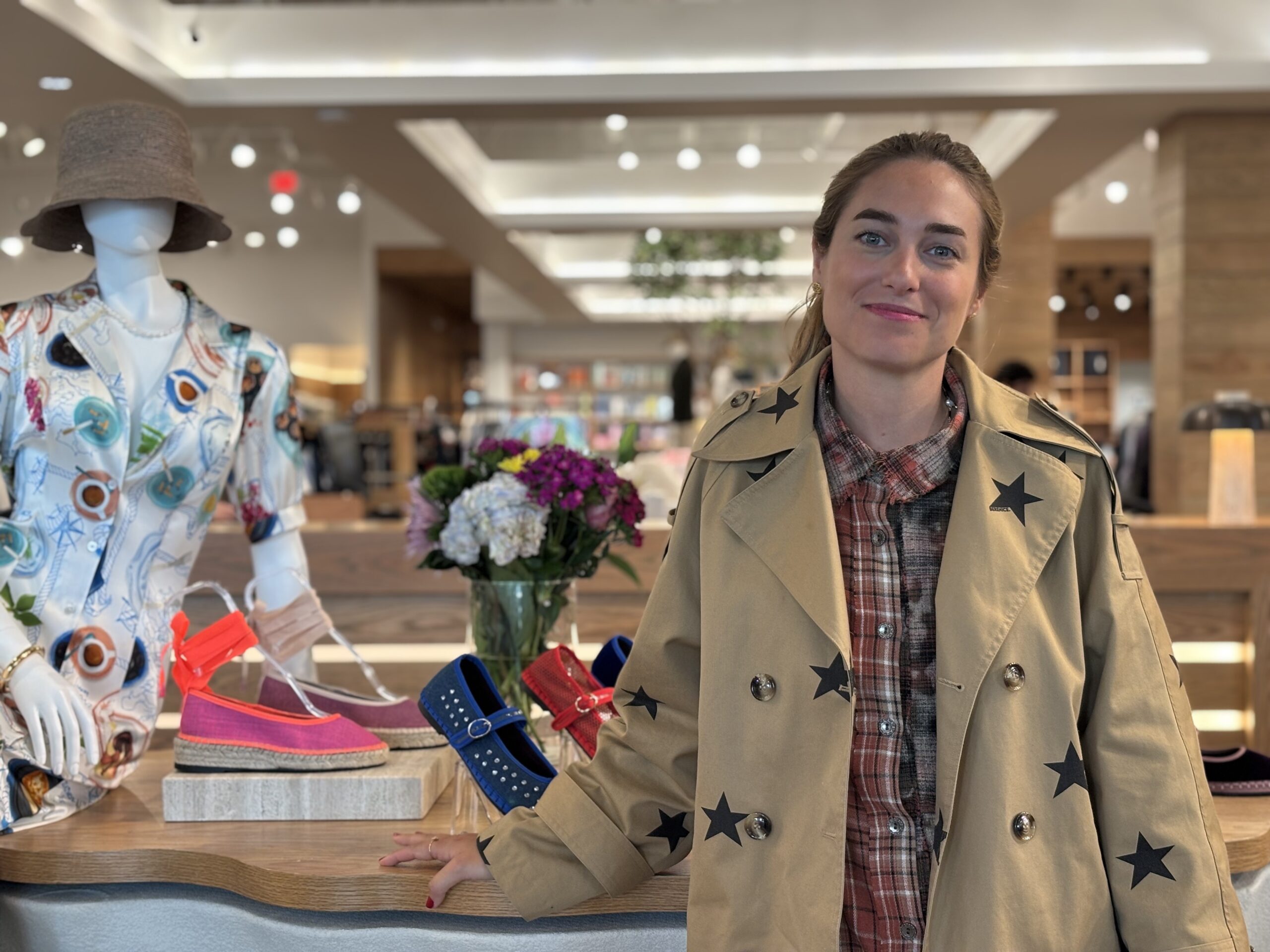Hosted by Raven N. Garza and Amanda Landa
Editor’s Note: This is a transcription of Latinitas Magazine’s SoundCloud segment “20 Questions With,” where we invite bold and creative Latinas and women of color to discuss their experiences and background. Listen along by clicking the link!
Hola Chicas! Welcome to 20 Questions With, a radio segment in conjunction with Latinitas Magazine. Latinitas Magazine is a strong voice for Latina and POC Youth, which is why the hosts of 20 Questions With are all young women of color looking to gain experience in innovative and creative fields just like you!
In each episode you’ll hear from striking women who are inspiring today’s youth with their passion, motivation and grit.
Today, join Volunteer Writers Raven Garza and Amanda Landa while they sit down and ask 20 Questions With director, producer, writer, and casting director Elaine Del Valle.
Before we get started, here’s a little bit about Elaine:
In 2020, Elaine published an autobiography titled “Brownsville Bred,” a Young Adult novel that was a quarter-finalist in Publisher’s Weekly BookLife Prize. The International Latino Book Awards are calling it the “Most Inspirational Young Adult Book.” The novel is now a part of Creative Writing and American Latino Cultural studies in public schools. Her books are also a part of the Latinx House library featured at major film festivals around the world.
What’s interesting about this book, is that “Brownsville Bred” was first introduced as an off-broadway stage play. She was named “Trendsetter” at the Multi-Cultural Media Forum.
And she went on to win the 2011 award in playwriting presented by the Hispanic Organization of Latin Actors.
Elaine is truly a guest that needs no introduction, so let’s get started with today’s show.
RAVEN: Hello, thank you for being here with us today. I’m Raven. And we’re here also with Amanda, if you want to kind of introduce yourself, Amanda.
AMANDA: It’s so nice to meet you. And thank you so much for being our first guest for 20 Questions. I’m Amanda and I am a recent Volunteer Writer for Latinitas. And I’m just really happy for you to be here.
RAVEN: Elaine, you’ve done a lot in your career. I kind of looked a little bit into all of your different work, you know, you’re a director, producer, writer, actor, and casting director, which is really impressive. You first gained your first acclaim with your play “Brownsville Bred,” which is now going to be turned into a novel, which is awesome. And your films have also gained a lot of awards. And we’re really glad to kind of dig deeper into all of your work as well as “Brownsville Bred.” So get let’s just jump right into it. And first question. Did you adapt “Brownsville Bred” into a novel in part to make the story more accessible to Latinx youth?
ELAINE: I definitely did. And as someone in media in general, like as a film director and as a film producer, another reason why you should develop your work into pros as a novel is because it actually supports the intellectual property of the story. And so even though “Brownsville Bred” was this amazing stage play that was, you know, critically acclaimed and the New York Times called it from “girlhood trials to onstage triumph,” and all of that, it’s still like, when people wanted to know more about the story, it was that I would either have to tell them, and they would ask me, ‘oh, where can I see the play?’ And you know, the play is not running all the time, or hasn’t been running for a while. But I wanted to be able to still share the story in the way that I wanted to share it, not just verbally, but also like ‘here, this is “Brownsville Bred,” here’s the book, here’s the story.’ And I wanted to be able to share that with people everywhere, so that you can go into your local library and ask for it and they’ll order it and it’ll be free for you to get from the library.
The Audible version was particularly a wonderful experience because it was like I got to perform the play again and you get to really hear it. And even though it’s certainly not word-for-word at all, you know, pros are pros, and as a play, it’s something else. It was a one woman show, but I still got to perform in the voice of the young Latina that I was growing up in Brownsville, Brooklyn in the ghetto, which sounds very different from the Elaine of today. You know, ‘I sound like this when I was talking, you know, back in Brownsville, everything is about the same.’ So I wanted people to hear that voice and hear that voice and make it also synonymous with hope in the future and somebody who is worthy of being read. So that reason to share it with the world, but also to strengthen the intellectual property that was the story for “Brownsville Bred” and will support the work as a film or series or anything that it should grow to be, it should not be limited.
RAVEN: When you were writing the stage play for “Brownsville Bred,” did you think about how your message would impact the Latinx community specifically? Was that on your mind? Or was it sort of something that happened naturally?
ELAINE: When I was writing the stage play, I actually didn’t know what I was writing. I was just writing. I was in an actor’s group of these amazing actors, professional actors. And we were studying under a legendary acting teacher by the name of Wynn Handman, who recently passed away of COVID, may he rest in peace. We were so used to working at this intense degree, that when he took hiatus for the summer, we all felt like, ‘Oh,’ we don’t have this, like, amazing united class anymore. So we all decided that we would start a writers group, and I invited all the classmates to my apartment in Manhattan. And we all got together, and we all just started writing our own thing. And I had been journaling for a while. I journaled a lot when I was a kid. So I just started writing those stories, and saying them out loud to my actor colleagues and friends. And it became like they were really interested in it.
When class resumed, when Wynn got back from his hiatus, I just said to him, ‘I’m going to be putting this piece that I’ve been writing on its feet,’ you know, ‘don’t worry, I’m not gonna waste your time, it’s just one time, I’m not going to keep writing it.’ Because Wynn was well known for helping people develop their one person shows like over and over again, throughout the three years that I studied with Wynn I had seen him actually cut down the actors that would come in, in hopes of developing their show. And he would just say to them, ‘Look, I’m not here to help you develop your show, you have to do what I assigned you to do.’ And that was that, and with good reason, because lots of people would come in and they weren’t, you know, like the story wasn’t developed. And it really did waste their time and the class’ time. And I recognize that. So I didn’t want to be one of those people. However, I did have this one piece, we were back from hiatus, he had not assigned people, scene partners or scenes yet. And I said, ‘Oh, I’m doing this, and I’m just gonna put it on its feet, Wynn,’ and I did. And he said to me, ‘You must keep writing this.’ And when he said that, I just, I was so encouraged to hear, you know, someone like him, you know, the founding person, the, the founding father of the American stage theater, to say that, to me, it just really meant the world to me. And then the play became a one woman show because of that. And it literally wrote itself, I would wake up in the middle of the night with all sorts of memories that had come back to me, because I was filling in from my past, it’s autobiographical. So it became a one woman play. So when I wrote it, I didn’t know what it was,
RAVEN: I’m really glad that he did see the value in your story. Because it’s, you know, it’s really been impactful. How would you describe your writing process?
ELAINE: It depends on what it is that I am writing. I wrote the novel, I write a lot of scripts now and pitches and things like that. So how would I describe my process for writing? Everything has a different process, I try to base everything on truth, I try that my art reflects a part of me that needs to be healed. And I want to heal it through the process of creating my art. And in this case, it’s writing. I have to first deeply believe in the themes that I am approaching. And that’s always a different theme, you know, we believe in different things. In my last film, “Princess Cut,” it was based on someone else’s play. But the film meant so much to me, because even though it wasn’t Latin at all, it had two women from opposite sides of the economic spectrum who found common ground. And that to me is something that I believe in. So if you believe in something and helps you to write it, and you inform it through your own perspective and your own experiences, you have to use that every single time to inform a story even if it’s entirely made up, you have to be very specific in your work in order to create the universality of it. So my process is that. I also use a lot of visuals, because I am also a film director. So whenever I get lost in something, if I create a visual, I really am able to fulfill the story with that visual, I’ll create a whole new scene based on a visual because I love the visual so much. And it really, it really does excite my work for me. That’s my process.
RAVEN: Between working on Broadway, film and now publishing with “Brownsville Bred,” which would you say you prefer, if you have a preference.
ELAINE: I really love all of them. And when I’m working on it, that’s the thing that I love the most. And I like having all these things to work on. Because sometimes I don’t feel like working on the other thing, and it doesn’t leave me stuck. So right now, you know, “Brownsville Bred” has been a play, I was just asked by WNYC to host a show called “Digital Verse.” And they asked me to perform a portion of the play that I’ve never performed for on camera before, I didn’t even have to actually memorize the play, because I know it’s so well, I’ve done it, you know, thousands of times. And I just went to this one scene that I felt was right for where I wanted to shoot it, you know, we were shooting in on an exterior because of COVID. We were shooting outside of the Nuyorican Poets Cafe where I first started performing the play regularly, I should say, but after the festival circuits, and, and I knew I wanted it to be outside. So I chose this exterior moment where she’s talking about the neighborhood, when I’m working on that performance and doing it. Oh, I love it so much. It’s just, there’s nothing like it. When I drove to my last set, I remember saying to myself ‘enjoy every single moment of this.’ Because it’s so rare that we have a chance to direct you know, there’s a lot of pre-production that goes on before the camera turns on. And so I knew I had to just enjoy every moment of it. And I did. And the best thing about directing for me is that you have that film forever. Now the film is forever, it’s out there it proves I existed. I love it so much. And it’s the only place where I get to express my full vision.
RAVEN: In your opinion, what are the most important elements for good writing, regardless of if it’s for the screen or writing a book.
ELAINE: So what I was saying about the box, you know, if I had stayed in the acting box, people were not giving me the opportunity to perform in the roles that I felt most connected to, because I physically did not embody what the Latina from the hood needed to look like to them. And so it was because of that, that I became really impassioned. You know, when Wynn said ‘you must keep writing this,’ so inspiring. But also it was my chance to really show people who I am. What made me who I am. I’m a girl from the welfare projects of Brownsville, Brooklyn, that’s the murder capital of New York City. My father was a heroin addict that died of AIDS. And my mother never made it past, you know, she never got to high school. So those are things that made me who I am. And people just wouldn’t recognize that. And they wouldn’t give me the opportunity to express my craft as an actor and roles that informed that. The writing of “Brownsville Bred” really showed people who I was. And if I had stayed in the box that they put me in and not become a writer, I would still be there hungry for the roles that I wish I had. And now as an actor, I feel so fulfilled, I have fulfilled my own needs as an actor, as an artist in that way. And as a writer, my needs are different. My needs as a writer, you know, I want to tell stories, I want to tell stories that include women, female stories, female lead stories, people of color, marginalized voices, I want to dignify those voices, I want to let people in to those voices by letting them into the core of who I am. And that’s how you let people in. So, you know, getting to your other question on good writing, that has to come from the inside. You can’t look artistic, you have to be very specific in order to to get to that place where people connect to the material.
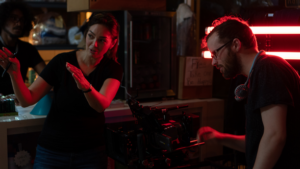
RAVEN: I saw that you were involved with the Latinx House initiative, which made me want to ask: Do you think that Latinx representation in film festivals will continue to improve or do you think there is going to be kind of a delay there?
ELAINE: That was very very little in 2017, for Latinos at Sundance, there was like one Remezcla podcast that they asked us all to come. And I remember it was myself, William, and the people who made “Gentefied,” which is a show now on Netflix. And they got picked up by macro and everything, but they were there. And it was like us and like maybe one or two other filmmakers. But we were the Latinx contingency. And we all fit in like a small room around a small table. This year, I went back to Sundance 2020 and it was the year for me, I felt like everything changed. And I’ve been involved in the festival circuits. And a lot of my stuff goes on. You know, there’s a lot of diversity film festivals out there, which are great for Sundance, such a huge one. This year was the beginning of the Latinx House. Back in 2017, the place that I felt most comfortable was in the Black House, because the Black House was about, you know, stories of color, and director and producers of color. And I really enjoyed everything that the Black House offered. And let me just preface that when you go to these film festivals, there are all these things to do. Sundance has a great array of things to do. There’s music lounges, there’s this lounge and that lounge, everybody sets up a lounge in the small town. And then there was the Latinx House, and the Latinx House was so beautiful, it was actually the nicest of all the homes of all the, you know, the lounges, and it had great lights and great music and great people. And it was in a great area, like a great spot. I was just so proud to be there. And then they had like the Latinx Library there. Then they had all these books by Latina by Latinx authors. And I was like, ‘Oh, my goodness.’ So I spoke to the woman there who’s an attorney and I said to her, ‘I just wrote this book and I’d love to give you the book. I’ll give you as many books as you want,’ you know, because the Latinx House goes to all these different festivals. And I wanted to make sure that she had my book for free for all these festivals. And she was like, ‘Oh my God, I’d love to.’ And so that’s how “Brownsville Bred” got to the Latinx House, the festival circuit is definitely changing. We are being recognized.
RAVEN: Were there any women figures like female figures, in particular, who inspired you when you were growing up?
ELAINE: I really have to think about that. Because outside of my family, you know, the only outlet that we had, we were poor, we didn’t go to the movies often, not at all. So all I had was television, there were very few Latinos on television, I remember learning that Linda Carter was part Mexican. And I was like, ‘Oh, my God, Wonder Woman was born Latina.’ And I was so happy about that. So growing up, I didn’t know all of these things. I was definitely inspired by teachers. There were teachers that always made me feel good about the work that I was accomplishing, like they would choose me for things. My aunt went to college, I always looked up to her. I still do. And she married a man that went to college. You know, like anyone who had this upper education, I just felt like that was someone that I should respect and love and just really aspire to to be like. But other than the people on my television set, I didn’t have many people around me to look up to and now as an adult, of course, you know, Shonda Rhimes, Isa Rae, the people who are writing their work creating their work blazing a path. These are the people that really inspire me, because they make me feel like I can do that too.
RAVEN: Was there a particular moment when you knew you wanted to end up being in the entertainment industry, in particular?
ELAINE: There were many, many moments. My father was a musician, and a singer. So all throughout my childhood, while my father was still around, when he was still well and not, you know, not an addict, he would form a band with me and my siblings, kind of like Selena, and I was always like the lead singer. And I always loved that. And I always felt like I was a performer in that way. And then my when my father was no longer there, I was a part of a public school that was you know, in Brownsville, definitely everybody there was poor and the school could not afford the things that like the teachers children’s school afforded, like putting on a play, but my gym teacher, Mr. Ronald surber, who lives in Florida right now. He decided that he was going to put on a school play and I became the lead of the school play. We all auditioned, I got the lead to the school play. And I remember that we all had to get through the entire scene before he would move on to the next scene. So the class literally spent months, just striving to get to like the next scene, and then the next scene. And if one of us didn’t have our lines, we would have to start all over again, it was so frustrating, all of us were frustrated. And then there was a scene that was just, you know, me and one other person. And then she had a couple of lines, and then she left and then it was just me. And I had to, like, do a monologue and then do a song. And I remember doing it and getting through the entire scene. And at the end of it, my teacher, you know, he would always stay in the back of the auditorium saying, you know, as if it’s the best, ‘you know, that last person in the last seat, I have to hear you.’ And I remember him clapping all the way up when I was done and he said, ‘this show will happen.’ And he made me feel like I made a difference. And so that moment, was the first time that I ever felt that I made a difference. And maybe that is the moment that sparked it for me as a performer.
RAVEN: What would you say is your favorite part about the filmmaking process?
ELAINE: Ah, there’s so many favorites, because I love directing acting actors. I love directing actors. So I think my favorite part is actually deciding on how the camera is going to inform the scene, where I’m going to place that camera. You know, what kind of lens I’m going to use to inform the story, what informs the story best? It feels like I’m, it’s like a calculation that I’m doing based on the story that I’m trying to tell. So for me, when I see it up on screen, I’m like, it’s not about the cool shot. It’s not like I want this shot, I want to have a Zali or I want to, you know, I want to Dutch Tilt, I want I want all these things. No, it’s not about like, what’s the shot that I want to have? Or because it’s a cool camera angle, it’s okay. I’m trying to make this into a moment where we’re really scared, and how can I use the camera to help me tell that story, okay, it’s going to be handheld, it’s gonna be on the knee, she’s going to be running, we’re going to be we’re going to be like in front of her, and she’s going to be coming at the camera, we’re going to feel like she’s gonna stab it. And that’s why, and that’s what makes it or like, here’s where we’re gonna break the rule, we’re gonna break the 180 line, because here is where the world just turns around. It’s like on its head. And this is where we’re allowed to break that rule. And yes, and this is why. So those things are really exciting to me. So that to me is my favorite part.
RAVEN: What was a Latinx film that you saw growing up that really left an impact or that influenced you?
ELAINE: There were no Latinx films that I saw growing up. I mean, I remember when I was 11 and my parents took me to see “Scarface.” I was actually really excited, because I thought that Al Pacino was Latino. And I love, I love the movie, I loved Al Pacino, I loved his sister, I loved, I loved everything about it. But I remember when I first came into the theater, you know, it starts off with the Castro talking. And it feels like a documentary. And I’m like, ‘Oh, no.’ And then like, once the movie started, I was so excited. So like, I love that movie, it really just inspired me, I just loved it. I know, that’s a silly thing to say. But I didn’t go to the movies very often as a kid. So this is, this is the only thing that I had to hold on to, and I don’t care if people don’t like it. I really love that story.
And you know, it’s a story about family and somebody’s trying to do something and, and I understand, deeply how people get caught up in trying to succeed at all costs no matter what. So that’s why when I write characters, even if they’re characters that are, you know, making bad decisions, I try to route them in like humanity. Because, you know, even criminals are humans. And, you know, we don’t know the circumstances that brought them there. So even like, the guy robbing me in the elevator when I was eight-years-old with my mother. My mother said, ‘you know, we don’t know what brought him to that.’ We don’t know if it was addiction. Maybe he needed money for his family. Like, we have no idea. And, you know, it’s just a different way to look at things. So I like to give everybody the human element because that’s the only way that people will be able to absorb the characters.
AMANDA: I too, also thought that Al Pacino was Latino when I was little, and I, my father made me watch Scarface even though I was too young. You’ve gained many awards and achievements from your involvement in the festival circuit. And I’m really curious: What’s your thought process when creating ideas for your films?
ELAINE: And I’d love to answer this question for people because they always say like, how do you get the awards? How does HBO like, like your stuff? Like, what? What is it that you’re doing to make them like it. And I always say the same things that people say, when you are creating, you cannot create with the intention of anyone else liking it, the only person that matters, if it’s liked, is actually you. And the reason why that is, is because you are the thing that’s going to drive it to fully act to be fully executed, you’ll drive it to fruition, no one else will do that. So you have to believe in it, you have to love it, you have to be married to it, it has to go through so much with you. Because it just takes too long to make a film. It’s so expensive, you need so many people, it takes a village and it takes a leader to put them all together. And people have to believe in that. And you have to be the person that they’re believing in. And yes, people do it for money, some people don’t care. But for the most part in filmmaking, you have to be able to make people care about either working with you, furthering the journey of your story, working with the actors, you know, getting better at working their craft all of these things. So that’s my answer to that.
AMANDA: Amazing. Now, we’ve been talking about your working experience, as well as how you’ve got into working in so many different industries. And I’m curious: What do you like to do when you’re not working?
ELAINE: My passion is actually my work. I am passionate about working. I can work all day long, 24 hours a day, 365. I just love, love, love my work. And I have so many facets of my work. You know, every morning I wake up, I say ‘I own a studio.’ My studio has a casting division, a production division, a development division. When I’m writing, I’m in development, when I’m getting ready to make a movie I’m producing. When I’m casting, I’m in the casting area. So all of these things, and I love doing all of them. So, you know, if you stop me from working, if you tell me ‘take a break,’ what you’re actually stopping me from doing is you’re stopping me from doing what I love. And I love it so much that like —I want to go see my mother. So I bring my computer with me. And she understands that because I have to get stuff done. And I’m right now I’m working harder than I’ve ever worked before. And I worked hard even before, you know, like before, people would say, ‘Oh, you work so hard.’ And now I’m working even harder, because now I have a new project that I’m working on. That’s really exciting to me. It’s something that I’ve never done before. And I’m collaborating with all these amazing people, especially women. And I said to my husband the other day, you know, I had such a great time in this room and like collaborating. And it was so long and it was so much work. It’s so much work. And you know what I’m finding and he started coming up with all these things like ‘Oh, you’re finding such and such.’ I said ‘No, you know what I’m finding? I’m finding me.’
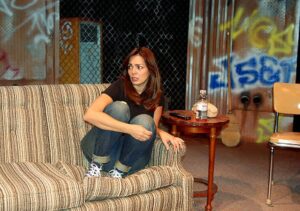
AMANDA: Taking a step back and reflecting on the world’s climate at the moment, how has your experience been creating content during the COVID-19 pandemic?
ELAINE: COVID-19 for any writer is basically Tuesday. Because what we are doing is we’re in front of our computers, and I’ve been a techie for a very long time. So even in the casting business, I have for a long, long, long, long time, I have been telling my clients ‘Listen, there is this way I can charge you this much we’ll do an in person casting.’ I called people into the studio, I could see about 90 people a day, if I’m lucky, I’ll read them all or send you the link. And that’s what you’ll see the best of those. Or I can do it for less money using eco-cast systems, where I send an invitation to the actor, give them the sides, say ‘okay, self tape for me, uploaded to my system’ like that way I can watch many more actors.
So I have long since been a techie in the casting world for four or five years. I’ve mostly been using this way. And I’ve been telling people this is the way. Why would you do it another way if you like someone’s performance, you can always say ‘okay, let me let me change this about it or change that about it.’ So you can directly see them after you receive their tape. If there’s something about ‘what’s going on there’ that you feel that you can work with that, they’re connecting to the material in a way, and you want to explore that further, that’s still possible. But in a video casting room, I could literally see 500 tapes in a day. Because the minute that you lose me, I can fast forward, I can go to the next person. I don’t have to stay there and do the niceties of casting. ‘Hello, how are you? come in. Okay, why don’t you do it this way? All right, thank you so much, have a great day.’ All those things I don’t have to do, I just cut right to the chase and get to the core of what it is that I’m looking for the writing, I stay in front of the computer, the casting, I stay in front of the computer, I build my own websites, I build websites for others. I’m always, you know, in front of a computer doing it, and I love to do it.
AMANDA: Speaking about the book, you’ve talked about how it’s about not allowing excuses to hold you back. And it’s about turning devastation into motivation. Are there times when you have off days? And if so, how do you turn them around and keep yourself looking forward?
ELAINE: I feel upset often when I don’t get the grant opportunities. Like not opportunities, I had the opportunity I made the submission, I didn’t get it. And, you know, yeah, that hurts. But here’s the thing, every time you apply for a grant, you get better at it. And now whatever the thing was that you created for that. Now you could use it for something else. So what you have to do every single time is use every rejection as a learning experience. And that’s how you get over it. And look, there are other times where you feel like you’ve done the best that you can do. And there’s always going to be someone who doesn’t like you, who hates you, who’s being passive aggressive to you. Those things hurt, but I have learned to like, ‘okay, that person is not allowed in my sphere anymore.’ I need to be in a positive environment. I cannot let others suck the energy out of me. Because if you’re doing that, whether it’s on purpose or not, it doesn’t matter. I’m culpable in that because I’m allowing it. You have obstacles, everybody has their stuff in life, their, you know, the things that held them back. It’s up to us to use those things, to help others and to heal us. Our art to heal those parts of us that need healing. That’s how we can do it. That’s how I do it. And then anytime that I feel devastated, I also know myself, so I know that I’ll sit upset for a day. And I know based on experience, that it will motivate me. That is just who I am.
AMANDA: What is your experience with imposter syndrome? And have you ever felt it during your career?
ELAINE: They say fake it till you make it —fake it until you make it. And that’s very true, like imposter syndrome. I have never met a talented person that didn’t feel that they were not talented. That didn’t feel like they’re gonna be found out any minute now. You know, but they are talented. They just, you know, it’s just a moment, a moment in time that they feel vulnerable, that they feel like they’re not deserving of what it is that they’re getting. But, you know, in the latest achievements that I’ve had, I have felt that I have earned it. Because, you know, Malcolm Gladwell has a book called the “Tipping Point.” And he says something like, you know, ‘10,000 hours of doing something, and then you become the expert in the field’ or whatever. And I calculate the amount of time that I spend working and I’m like way past the 10,000 hour mark. So I feel like I’ve earned this. And you know, other people have told me, but I also have to tell it to myself as well. But it’s because I really am doing the work. And I and I have to acknowledge that about myself. But at the same time, just stay doing the work. I can’t just rest on what I’ve done. Because everyone in this industry is not about what you did yesterday. It’s about what you’re going to do tomorrow. And so every time I work on something, I make sure that my films, every film expresses my growth. I cannot make the same film again, because it’s not going to express my growth. So I have to keep working with new people, keep collaborating with new people in order to grow from the experiences to grow from the other people. And even if it’s, you know, even if it’s not as good as my last project in the eyes of other people, I know what I have done differently to achieve a different result.
AMANDA: Following that question, other than imposter syndrome. What are some other challenges that you have faced to get to this point in your career at the moment?
ELAINE: I find that today there’s a lot of ageism. You know, we talked about early, having early experiences. So like, I’m an O.G. in this community to most people. But I don’t have the degree and all that experience. Like as a director, I’ve only done a few short films, and yes, I am growing at a rapid rate. But imagine if I had started a lot earlier, how much further I would be. So I feel like I need to catch up to where I need to be. And so it’s ageism. It’s a male dominated industry. Follow me on Instagram, and you’ll see all of the director stuff that I put out for women, specifically, the amount of women episodic directing television. Nevermind the amount of women of color, like it’s non existent? Well, it is existent. There’s like one or two. But, that’s it and the Directors Guild of America, and it’s definitely male dominated. It’s definitely ageism, and it’s ageism for a reason. I understand it. What companies want when they invest in you, when they end, when they let you into a writers program, there’s something that they’re concerned with all the time, not just talent, but ROI, return of investment. So they invest in a 20-year-old writer that they think is up and coming and great at writing, they now have 40 years to grow that writer, 45 years to grow that writer. And if you’re a man, it’s even longer, because you don’t have to stop to give birth. Right? So, they’re looking for a return of investment, and they don’t see it in a woman as much as they do in a man. And they certainly don’t see it in anyone over the age of 40. So those are definitely obstacles that I continue to stumble across. And it’s OK, because those things are not going away. And I just have to work around them. And just continue to say ‘yes’ to myself.
AMANDA: Can you give a few tips to young, aspiring Latinx filmmakers who are hesitant to enter the industry?
ELAINE: Any filmmaker, I would say the thing to do is to just make films. You can’t say you’re a filmmaker, and then not make films. You must just keep on doing it. Collaborate with others, don’t try to reach up beyond, like, ‘Oh, I want to work with that person, because he did like a big movie.’ No, you want to work with the people around you at your level, because together you will elevate. And then one day you will be those people that everyone wants to aim at, right? So you have to work with a group, a core group where you’re all learning together so that you elevate together and you create these teams that help one another out and collaborate because nobody makes a movie on their own.
The other thing that I would say is that we are all filmmakers today. We all have these amazing cell phones that you can actually make movies with. I am here —I’m sitting here with an iPhone 11. It’s a Pro Max, but I have all these lenses that I actually attached to it from moment to moment and I can make a better film with this. I have an external mic for it. All this stuff that I bought. Yes, it does cost me probably a little more than $1,000. But that’s nothing compared to another camera and what that would cost, but I’m not a cinematographer. OK, I don’t want to be a cinematographer. But as an independent filmmaker, if I don’t have cinematographer working with me, sometimes that limits my work. So I got myself this stuff so that I don’t have to be limited sometimes. Maybe I just want to go out there with the girl who’s playing me and just get a shot of her walking from behind to serve as my proof of concept. My book cover of “Brownsville Bred: Dreaming Out Loud,” I shot that on an iPhone, and it’s beautiful. And I love it. I love everything about it. I love the colors, I love where I set it, it cost me nothing. It cost me nothing except for my time, my ingenuity, my vision and I executed it. So yeah, make films. Make films on your cell phone. And by gosh, YouTube. You can go on YouTube and learn just about anything. You can learn editing, you can learn filmmaking, you can learn lenses, you learn lighting. If you are not learning, it’s your fault.
AMANDA: Are you working on anything at the moment that you would like to share?
ELAINE: At the moment, I did say that I am working on an episodic television pilot that I created, and I’m in love with. I love, I love everything about it. And at the end of this week, Friday, I have the big opportunity of sharing that work with someone who has the ability to green-light it. And, and I’m being, you know, brought up by a team on that. And so I feel really great about that. But in the meantime, I’m always in development of my next project. And my next project is actually making my “Brownsville Bred” novel into a film. So I have been adapting it into a film for quite a while now, I actually just got a grant from the Sundance Institute in support of that. And I’m making it as my first feature film as a director. But I’m realistic as to what I’m able to accomplish on my own at a time. And so what I have developed is I’ve developed a script that serves as three things. It serves as the proof of concept for the feature, it serves as a short standalone film for the festival circuit, and it also is the first act in the feature film. So that’s what I’m working on.
And then, you know, on the casting front, you know, the stuff that actually pays me money. I’m the head of casting for a pipeline animated series right now is, I guess, a lot of things. But I’m the head of casting for a pipeline animated series that stars a Latinx protagonist’s female kid, with her family, and it’s set in the multicultural Bronx. So I can’t talk about it. Except to tell you that. And to say that the makers of it, the creators of it, are people that I am so humbled and proud to actually help them to make this project the best that it can be. And right now, like we’re casting, we cast like the whole family. And right now we’re casting the lead. And I’ve cast over 23 actors, I gave 23 actor’s jobs on this, and they’re making money on that. And, and I love doing that, because I know what it’s like for an actor to need work, want work, and get work. You feel so good about your craft, and I love that’s another experience that I really love about casting is actually being the person to say, ‘hey, you got the job’ or like, ‘hey, yeah, they got the job,’ because I remember what it’s like getting the job myself.
AMANDA: Here’s a little fun question. What’s the most recent movie you have watched?
The last movie I watched was “Charm City Kings” at the drive in at the New York Latino Film Festival. So I went to a drive-in very recently, because of COVID, it was a drive-in and it was by a Latinx director named Angel Manuel Soto. And it was very well done. And because of that feature film, he is now doing a big studio movie. But I just watched this morning, see, I consider watching a part of my job. I’m watching for a story. I’m watching for acting. I’m watching for the way it unfolds. I’m watching the directing. I’m watching it acutely. And I’m trying to learn from it. So this morning, I started binge watch a lot. So this morning, I started watching “Tehran,” on Apple Plus. And it’s such a good series, I’m really enjoying it. So that’s what I’m watching at this very moment.
AMANDA: And my final question, is there any last advice or statements you want to give to our audience?
ELAINE: Statements are ‘just do it.’ Don’t make any excuses. Don’t let anybody say ‘no’ to your dream. If you’re willing to do it, just do the work. Keep your head and your nose down, like down so that you know, like, just keep moving in the direction to get it done. And then choose your goal. And only say ‘yes’ to the things that are going to help you to attain that goal. And I’m not saying don’t do other work, but I’m saying like, OK, maybe work on this movie, because you’re going to get to work with a producer and learn a bunch of things. And that’s going to help you make your film. Or, you know, ‘oh, let me cast this’ because I know I’m going to get to know all these Latina actors and I’ll be able to give some jobs. And the really talented ones, they’ll be able to say, ‘hey, you want to work with me on this other thing?’ It’s so cool. And they’re gonna say ‘yes,’ because they’re so happy to have gotten a job. Say ‘yes’ to things, but make sure that they don’t take you off of your channel. Lack of achieving your goal, because if you don’t do it yourself, all you’re going to be doing is working toward other people’s goals.
AMANDA: And I believe that’s about it. Thank you so much once again, Elaine, for being able to interview you, I genuinely appreciate it. Because I know that Raven and I genuinely appreciate talking to an aspiring Latinx person like yourself. And I’m just really happy that we got to talk to you. So thank you.
RAVEN: Yeah, thank you so much. It really means a lot. And you’re really inspiring me to keep doing what I want to do. I love doing media and writing. And film is always something that I’ve loved watching and being involved with. So yeah, it’s great to hear from you. And yeah, I love the chance that I got the chance to talk to you. So thanks again.
ELAINE: It was really a pleasure. And yay, Latinitas!. I love your name. I’ve been following you guys for a while now. And I was so excited that you guys wanted to talk to me. So thank you for that. And thank you for being an inspiration to so many young Latinas. And for giving me a chance to really share my work with you. And hopefully get people to read the book “Brownsville Bred”, and know the story and be inspired by a voice that is out there and whether it represents them or not. It’s such a unique voice that hopefully they are inspired to know that their unique voice also matters and will also realize their voice onto the pages of a book that can be read across the world.
To read Elaine’s novel “Brownsville Bred” you can buy the book at Barnes & Noble, Amazon, Apple Books, and or listen on Audible.
If you’re interested in pursuing a career in media, make sure to visit us at LatinitasMagazine.org for more information – we’d love to hear from you!
Thank you for tuning into this episode of 20 Questions With! See you next time!
About the writers:
Raven Garza is a graduate of the University of Texas at Austin with a bachelor’s in English Literature and is now the Content Marketing Manager at Popspots. She has a background in the entertainment industry, tech startups, and art history. Garza is fond of covering live music, Latinx life and culture, and LGBTQ+ topics. Her works have been published in Austin Startups, Do512, Front Row Center, and Latinitas Magazine. To de-stress, she enjoys crowd surfing at punk shows around town.
Amanda Landa is recently a second year student at the University of Texas at Austin, majoring in Journalism and minoring in Digital Media. She has skills in broadcast, social media, audio journalism and magazine editing. Landa, like a chameleon, is versatile in her work, ranging from current events to pop culture. You could find some of her work published in Afterglow, Burnt X, & Latinitas Magazine. When she is not busy, Amanda likes to take the time to watch a film and on her daily phone calls with her family.
Latinitas Magazine is a department within Latinitas, a registered nonprofit. We are funded by readers like you, so please consider donating today. Thank you!



